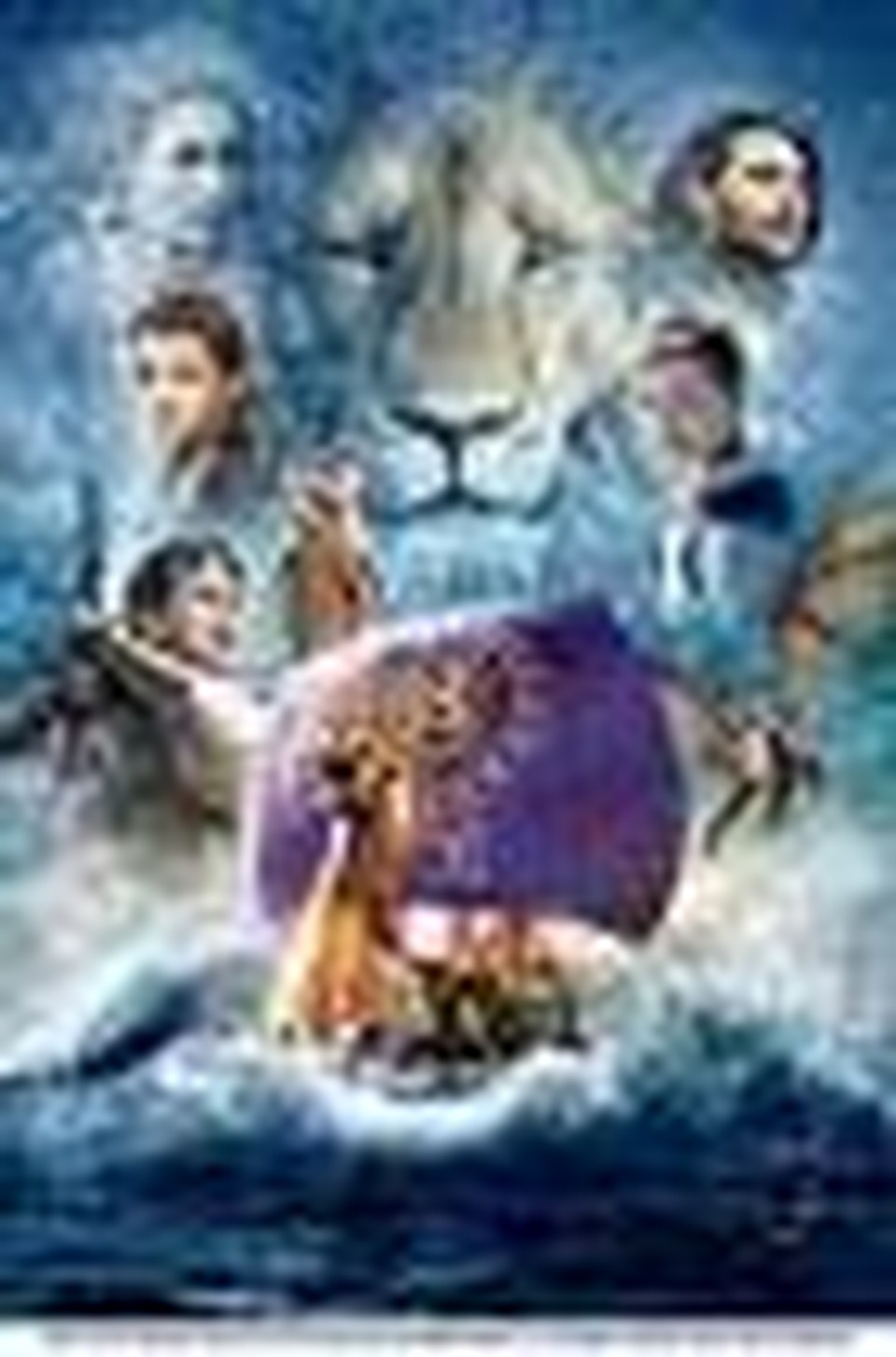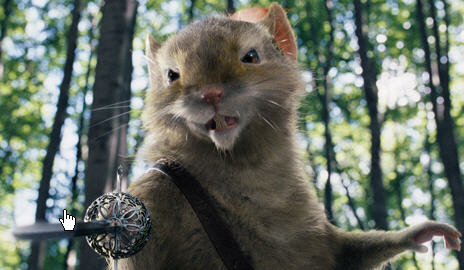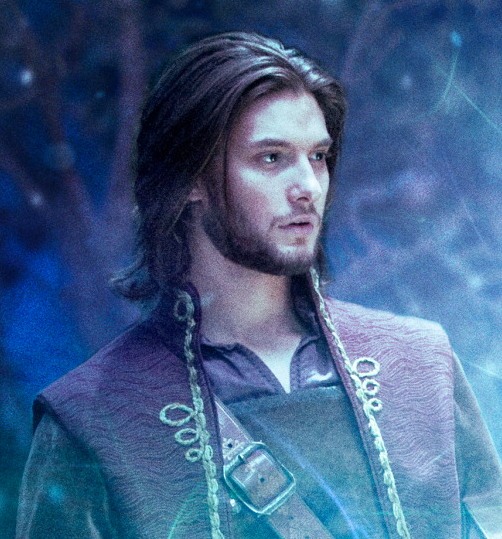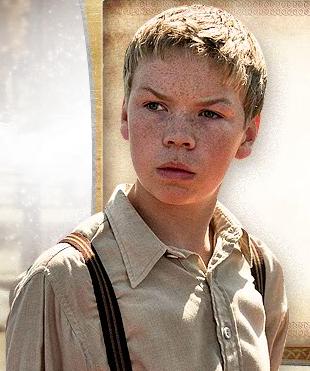Meet the Characters of The Dawn Treader

Narnia fans already know Lucy and Edmund, but The Voyage of the Dawn Treader provides even familiar characters with new story arcs and moral directions. Learn more about Aslan, the Great Lion who called the children into Narnia; Eustace, Lucy and Edmund's the self-centered cousin; Lucy and Edmund, who face new temptations and challenges; Reepicheep, the courageous Talking Mouse; and Caspian, the Narnian king on a special quest.

"[In your world] I have another name. You must learn to know me by that name. This was the very reason why you were brought to Narnia, that by knowing me here for a little, you may know me better there." - Chapter 16
The Great Lion is the bridge between Narnia and England, calling Edmund, Lucy, and now Eustace to his world for his own purposes. He plays a less visible role in Dawn Treader than in the previous Narnia tales, but his infrequent appearances often change the course of the story. Author Devin Brown describes Aslan's appearances to the children and Caspian as moments of redemptions, freeing them from the pitfalls of sin. That's not to say Aslan intervenes at the first sign of danger - he often allows pain to have its day. As a Christ-figure, Aslan uses that pain as his "megaphone," Brown writes, "his tool to rouse someone who has been deaf to all other attempts to get his attention and blind to the reality of his inner condition." The vignettes of the Dawn Treader are all unified in Aslan's purpose.
There was a boy called Eustace Clarence Scrubb, and he almost deserved it. - Chapter 1 of The Voyage of the Dawn Treader
Everyone matures in Narnia, but Eustace might be the most shining example. He more than lives up to what Brown calls his "priggish, snobby name" at the beginning of the story. Eustace goes to school at the Experiment House, where the boys and girls are allowed to do whatever they like - even if what they like is bullying others. His forward-thinking parents don't provide much moral direction either. Without any stories or faith to broaden his horizons, Eustace's world is very small.
In fact, his adventure in Narnia happens because he refuses to stop needling his cousins, Lucy and Edmund. Once he arrives on the Dawn Treader, his condition as a demanding bully becomes increasingly apparent. But "Eustace's condition of being friendless, self-centered, and dominated by the desire to dominate is a state in which Aslan will not abandon him," as Brown writes. His dragonish nature will have consequences, yet this punishment serves a redemptive purpose - his curse will bring him face to face with Aslan, the only one in the Narnian world who can save him.

And every night they saw that there rose in the east new constellations which no one had ever seen in Narnia and perhaps, as Lucy thought with a mixture of joy and fear, no living eye had seen at all. - Chapter 13
The youngest of the four Pevensie children, Lucy possesses a special sensitivity to Aslan's presence. She is a truthful girl who offers her friendship and compassion readily, even to creatures like Eustace who least deserve it. Her voyage on the Dawn Treader will be her third trip into Aslan's world, and she still exudes the blissful contentment of a child in the Great Lion's kingdom. Yet Lucy struggles with her own insecurities. Living in the shadow of her lovely sister Susan, the seduction of the attractive can distract her from being truly winsome. She and her brother Edmund will both face inner trials on this journey to Narnia.

"Between ourselves, you haven't been as bad as I was on my first trip to Narnia. You were only an ass, but I was a traitor." - Chapter 7
Though Edmund shared Eustace's bullying and power-hungry tendencies on his first trip to Narnia, his encounters in that world have transformed Edmund into a courageous adventurer. This is his third trip to Aslan's world, and he returns as one of its greatest kings. He shares very little in common with Eustace at this point, but he hasn't quite grown up yet. At home in England, Edmund chafes at boyhood restrictions, because he's tasted kingship in Narnia. Brown notes that Edmund's first two trips to Narnia required him to battle external foes like the White Witch; this trip will force him to confront the enemy within. He may not face dangerous foes this trip, but Edmund is still vulnerable to pride.
Reepicheep the Talking Mouse

Where the waves grow sweet,
Doubt not, Reepicheep,
To find all you seek,
There is the utter East.
I do not know what it means. But the spell of it has been on me all my life" - Chapter 2
This Talking Mouse has two purposes in life: first, to increase his honor, and second, to reach the end of the world. Reepicheep is only two feet tall, and he makes up for his lack of height with an overabundance of bravery that borders on the cavalier. The Mouse's courage is his most admirable virtue, as he is quick to defend the defenseless, but this courage is also his weakness, as he's liable to pick a fight when a gentle word is more apt. Despite his preoccupation with his honor, however, Reepicheep really longs something greater than himself. "Though from time to time Reepicheep loses sight of it, the real object of his desire is reaching Aslan's Country," Brown writes. This insatiable longing leads the Mouse on the greatest adventure of all.

"On my coronation day, with Aslan's approval, I swore an oath that, if once I established peace in Narnia, I would sail east myself for a year and a day to find my father's friends or to learn of their deaths and avenge them if I could." - Chapter 2
In Prince Caspian, the rightful king gained his throne with the help of the Pevensie children. Now three years into his reign, Caspian has left his kingdom in search of seven lords exiled under his uncle, Miraz. The young king's desire to reach the end of the world - perhaps even Aslan's country - is always simmering just below the surface. Brown writes that Caspian's quest mirrors our own "need for continual development, our ongoing need to do more than stay where we are, to stay where everything is safe and predictable, and rest on our past accomplishments." Like the Pevensies and Eustace, Caspian still has some growing up to do, and will require Aslan's help in doing so.
Originally published February 23, 2013.






